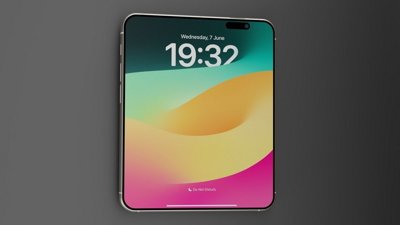The Post reported on Monday that the DOJ and FTC are "locked in negotiations" over which will formally begin the antitrust proceedings. Both are allegedly looking into Apple after the Cupertino, Calif., company added a clause to its developer agreement for the upcoming iPhone OS 4 software upgrade. That addition specifically prohibits the development of applications using "an intermediary translation or compatibility layer too," which bans the porting of software originally written for Adobe's Flash, Sun's Java or Microsoft's Silverlight/Mono to the iPhone OS.
Apple's change prompted Adobe to abandon further development of an application included in its just-released Creative Suite 5 that allows developers to port Flash applications to the iPhone OS. Such applications will be rejected from the App Store for the iPhone, iPod touch and iPad under the new developer agreement.
The Post noted that an inquiry does not mean any action will necessarily be taken against Apple. Inquiries are initiated to determine whether a complete investigation will be conducted.
"Regulators, this person said, are days away from making a decision about which agency will launch the inquiry," author Josh Kosman wrote. "It will focus on whether the policy, which took effect last month, kills competition by forcing programmers to choose between developing apps that can run only on Apple gizmos or come up with apps that are platform neutral, and can be used on a variety of operating systems, such as those from rivals Google, Microsoft and Research In Motion."
The news comes just days after Apple co-founder Steve Jobs wrote a scathing essay on Adobe Flash, criticizing the Web format as unfit for the modern era of mobile computing. Flash was created for the "PC era," Jobs said, for use with PCs and mice. But he argued the format is not meant for touchscreens and results in poor battery life for mobile devices like the iPhone and iPad.
Jobs also contended that intermediary tools, like the one found in Adobe's CS5 for porting Flash to the iPhone OS, result in substandard applications and result in developers who are dependent on a system that will not offer all of the latest features of Apple's own development tools.
Adobe's CEO quickly fired back, disputing Jobs' claim that most Mac OS X crashes are caused by Flash, and instead suggesting those crashes are an issue with Apple's operating system. He also said the comments about Flash draining battery life were "patently false."
As Apple has banned Adobe Flash from its mobile devices, Adobe has responded by embracing Apple's chief competitor in the handset space, Google Android. This weekend, one report alleged that Adobe has plans to give its employees new Android phones running Flash Player 10.1, the new mobile version of the format set to be introduced at Google's I/O conference in May.
The Post noted that while Apple has continually portrayed itself as the underdog, its $237.6 billion market cap now exceeds Walmart, the largest retailer in the world. In addition, Apple last week became the largest phone maker in the U.S. after rival Motorola reported sales of 8.5 million handsets in the quarter, less than Apple's own sales of 8.75 million iPhones.
 Neil Hughes
Neil Hughes






-m.jpg)






 Malcolm Owen
Malcolm Owen
 Bon Adamson
Bon Adamson
 Marko Zivkovic
Marko Zivkovic
 Amber Neely
Amber Neely



 Christine McKee
Christine McKee


-m.jpg)






208 Comments
What market are they supposedly monopolising? Not the smartphone market. The iPhone market?!
If you define the market small enough, anyone is in breach of antitrust.
As Apple has banned Adobe Flash from its mobile devices,
I wish you'd stop publicizing Adobe FUD.
There IS no full version of Flash for ANY mobile device. Even Flash 10.1 which may come out this summer if Adobe ever manages to hit a target, requires an 800 MHz A8 processor - so it will not run on any phone with the iPhone's specs.
I don't know how Apple can be said to have banned something that doesn't exist.
They did, however, say that Flash is a lousy technology for mobile devices - and the fact that no one else has it today confirms that.This rumor is nonsense. Apple doesn't have a monopoly in the mobile phone space or even the smart phone market, so DOJ has nothing to say about it. FTC does not have regulatory authority to control how a vendor works with application developers, either.
I think someone was listening to the Adobe shill-trolls in this group.
This has been coming for a while. Whilst I'm not sure you can say Apple have a large enough market share in any market to actually warrant action, but Apple have been acting in a way that was likely to eventually have regulators sniffing around.
Given the debate this was inevitable and I guess nothing strange as such.
Will it lead to anything? In my opinion no. Why should it? I will not argue - arguments will follow soon enough and I don't think arguments will support that Apple's breaching any antitrust laws on any side of any lakes in the world.
This will come to nothing.
There's no "there" there!